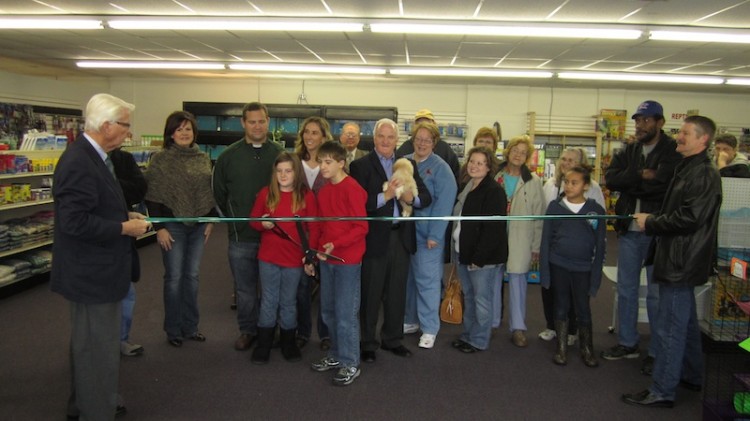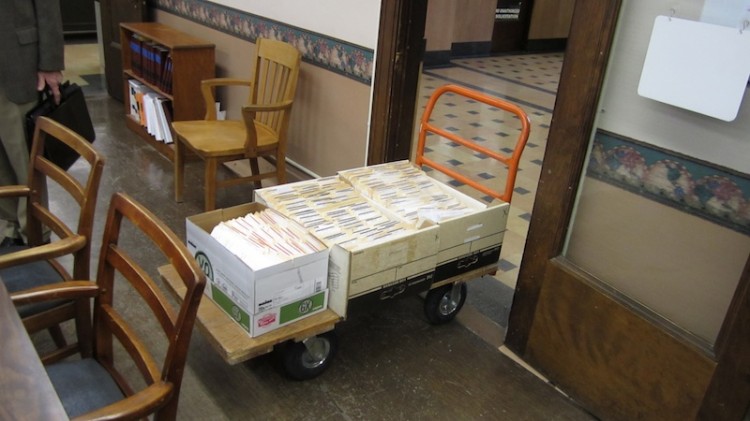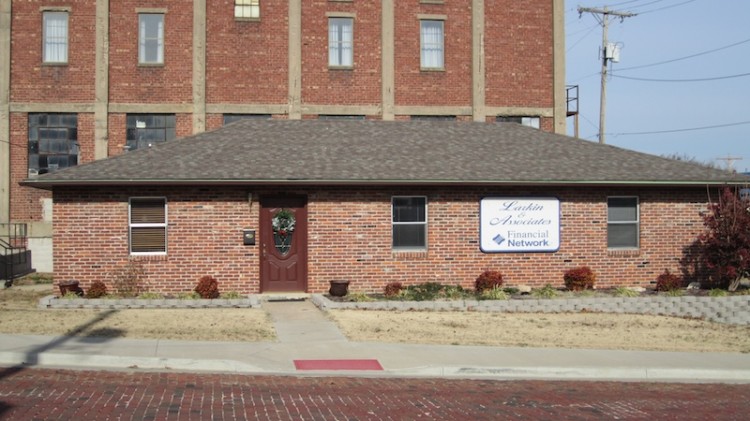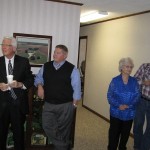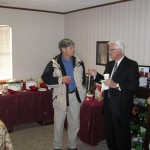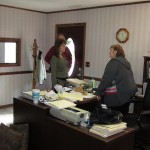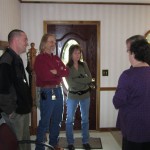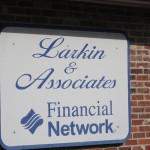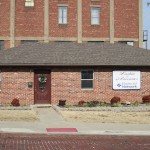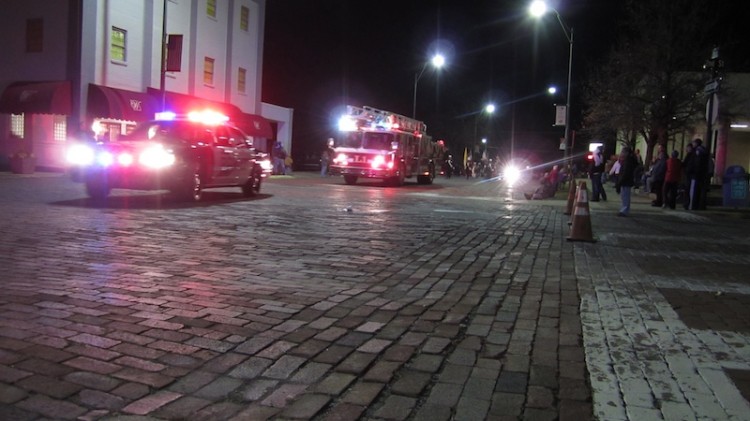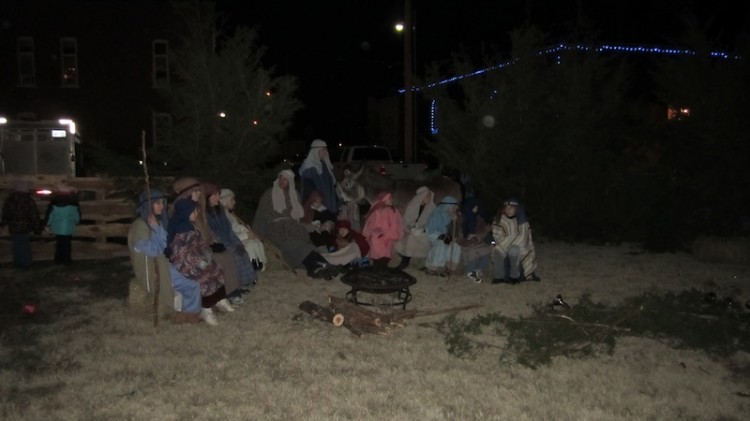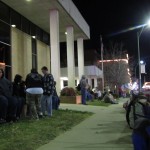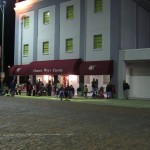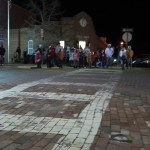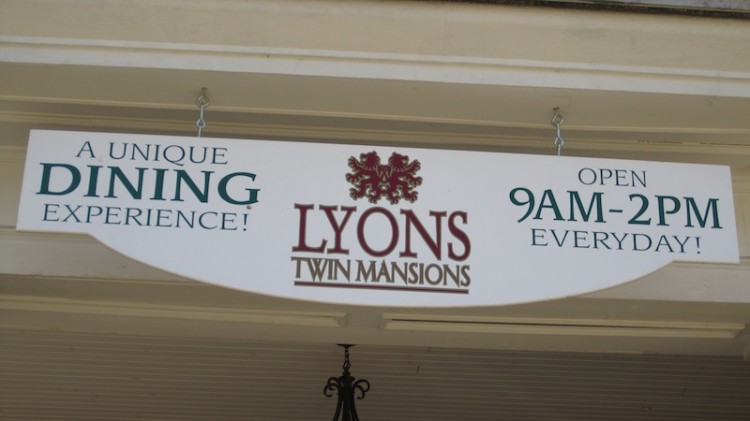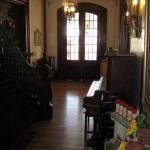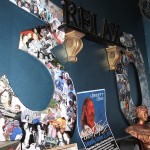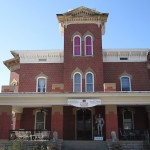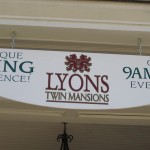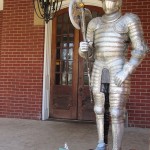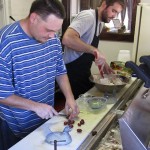The Free Holiday Supper will be served at 5:00 PM, Saturday, December 10 in Arcadia Community Center. Open Door Mission and Christian Church are the Hosts. Please take a non-perishable food item to fill Christmas Baskets for Holiday Giving. There will be door prizes and music by Janelle Bunny.
The Bearcat Cafe in Arcadia is open Tuesday thru Saturday 7AM-5PM.
Lynetta Fisher was pleased to hear the birthday song dedicated to her Sunday morning as she gave her offering. Among those present were her brothers Zack & Nick Younge in Arcadia Christian Church.
Walter & Donnette Parrish came from Houston, Texas to visit his parents, John & Vera Parrish in Pittsburg and other family relatives for Thanksgiving Holiday.
Bill, Delton Jr, Tom and Allen Watt sons and two grandsons, Douglas & Joseph Watt visited Mae Watt for Thanksgiving Day . Bill’s Great Grandson, Michael was recently married in St. Louis.
Cause for a great Thanksgiving Holiday when Landen Walrod shot a 10 point Buck. Sunday November 27, Charles & Willa Cable celebrated Thanksgiving with Bob & Lori Cable,Sam and Nate in Lamar, Mo. Guests were Seth Cable & friend Paige from Pittsburg.Then Thanksgiving Day, Charles & Willa celebrated with Cherri & Paul Walrod family from Eudora and Mable Tacilet from Ft. Scott.
Arcadia residents want to send a thank-you to Senator Jerry Moran, Republican from Kansas who is working to help save Arcadia Post Office and other small towns’ mail service.
The day Class # 10 met in Arcadia Christian Church bungalow, November 16, 2011, Arcadia welcomed the first snow of the season.By the time to return home, it had all disappeared. Members are asking folks to please save the UPC’s from Best Choice groceries. It is to raise funds in order to help the JOY and Class #10 do for others especially during this season and throughout the year.
Bill Dobbins, Frontenac, fell in his home on Saturday, Nov 26. He is now in Via Christi Hospital, Pittsburg facing surgery for a broken hip. His friend, Charles Corporon, went to see about him when Bill did not answer his phone. EMS and Police soon had the patient in the hospital.
Ora Lee Phoebe Foster Morey, 80, died Wednesday, Nov 23, 2011 in Via Christi Hospital in Pittsburg. She was born in Arcadia to Richard & Anna Mae (Bennett) Foster and was married to Jerome Morey in 1956. She attended Arcadia Grade School and a graduate of Pittsburh High School. Many of us old timers remember her well as a little girl in Arcadia.
Ron Wolf of rural Garland suffered a heart attack last week and was rushed to a KC Hospital.
During Thanksgiving week, Shirley Applegarth of Tulsa and her sister, Mildred Beitzel and daughter Linda & Mike Chase were house guests of Mary V. Shead. They flew back to their homes in Washington State the weekend after attending a large family reunion dinner held in the Farm home of Vickie & Larry Shead. Those signing the register on Thanksgiving Day numbered seventy-three. Many of the cousins and little ones stayed until after church the following Sunday.
On a recent week, Ralph & Cindy Shead, Phil & Susan Casey and Emily, and Doug Reed went to Atlanta, Georgia to attend the National Missionary Convention as delegates on behalf of LATM, Joplin.
